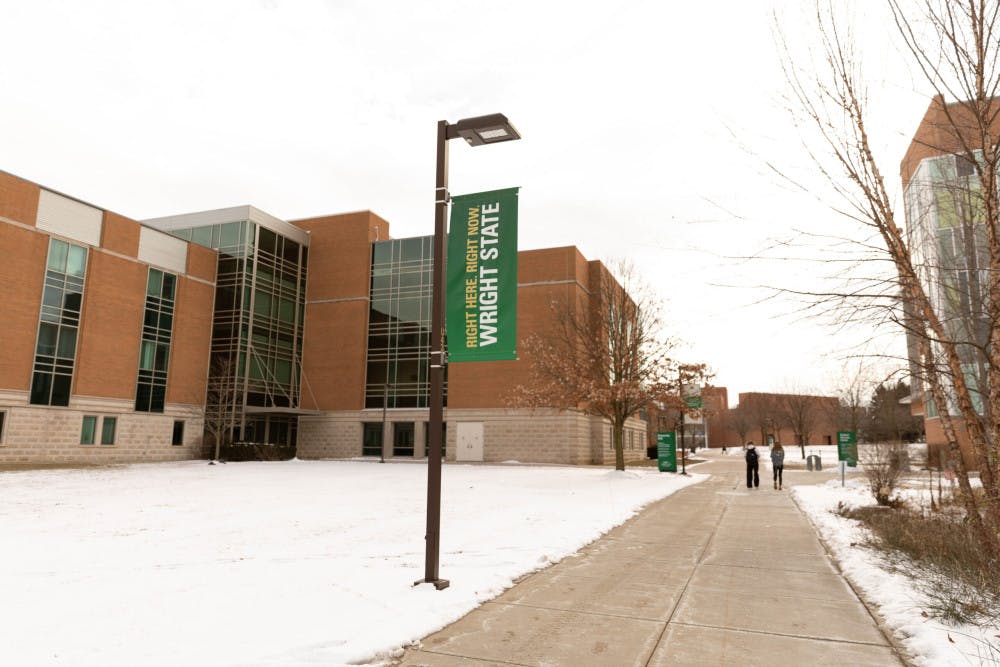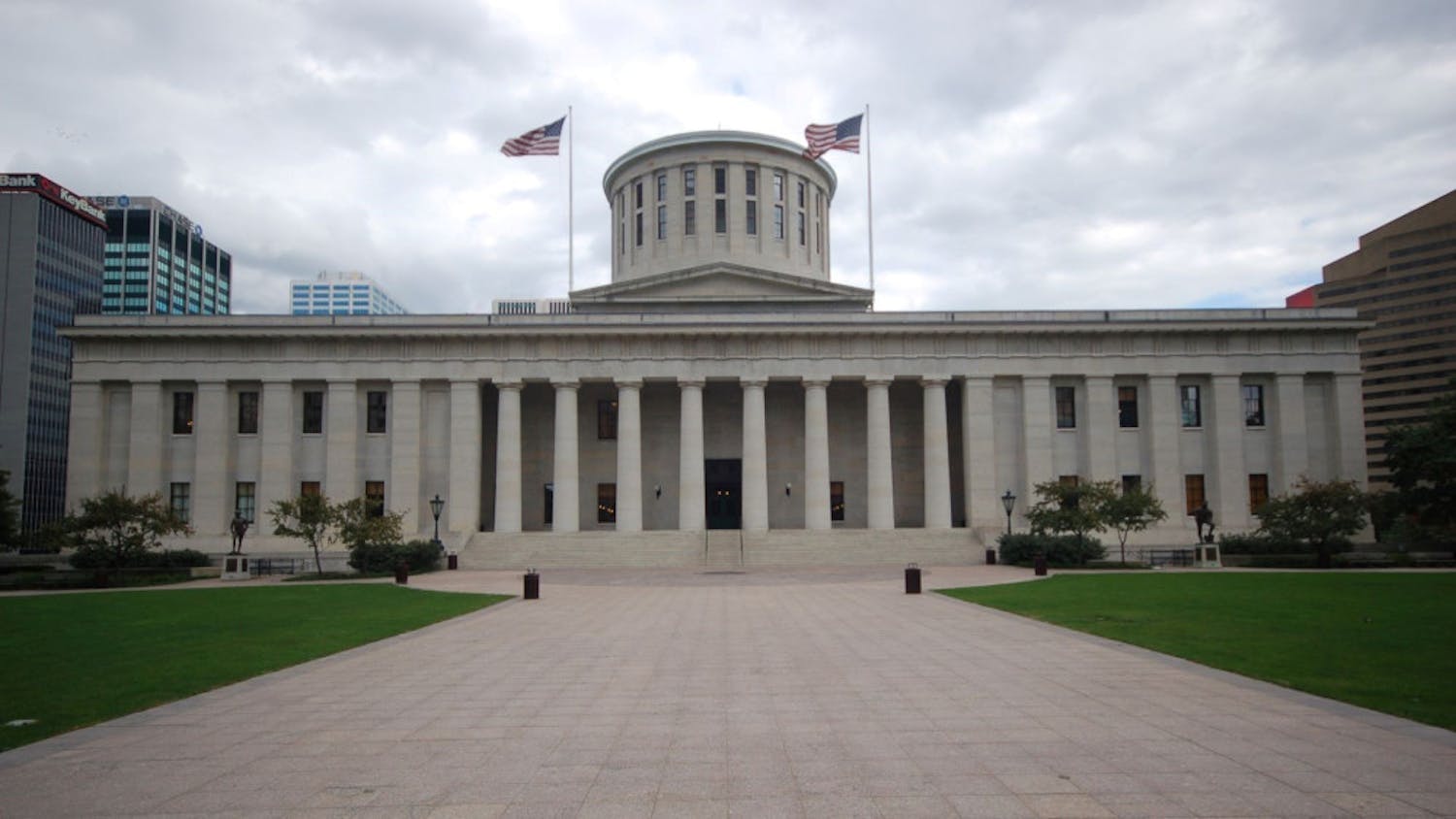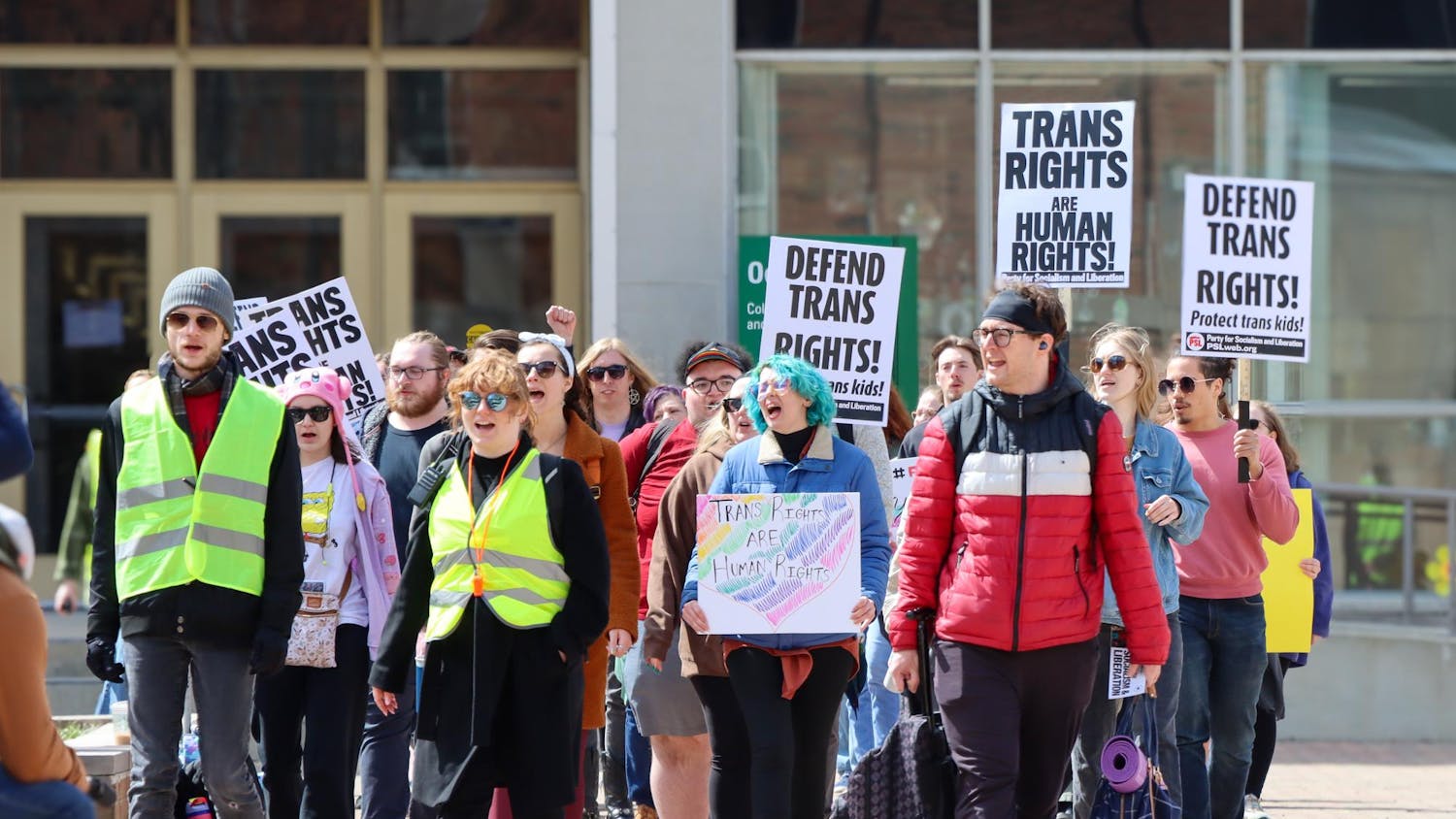WSU Campus | Photo by Bethany Althauser | The Wright State Guardian
The American Association of University Professors and Wright State University make a new CBA, or collective bargaining agreement, every three years. The last one expired in June 2023, and the new one was voted on and approved in December 2023. This contract will last until June 2026.
The background
Gretchen McNamara, senior lecturer and chief negotiator, gave insight into the process of negotiating the new CBA. According to McNamara, negotiating began in January of 2023. She explained that several articles were still being discussed during June, which is the reason why it was extended.
Previously, WSU staff went on strike during the negotiation of a CAB. Robert Rubin, senior lecturer of English and director of ESL, explained the strike and the AAUP-WSU stance now.
“[Strikes] only should happen when they're the last resort. That unfortunately was the case five years ago, but, you know, we've moved way past that, and we're looking forward to a really bright future for our students. That's why we're here,” Rubin said.
According to both McNamara and Rubin, the discussion for the current CAB’s negotiation was cordial and smooth, especially when compared to the previous one.
What is different
According to Rubin, the CAB is a “few hundred pages” long, meaning that there were many things agreed upon and presumably altered slightly in this agreement. The CAB has not yet been posted to be read by the public, but Rubin predicts that it will be soon.
McNamara explained that several little things were negotiated, such as the required amount of office hours, which used to be two hours. The AAUP wanted this changed to six, so they ended up settling on four.
Rubin explained the difference in summer teaching as well.
“It used to be a percentage of a faculty member's salary was how we got paid for summer, and it's now a flat rate per credit hour,” Rubin said.
This will benefit professors with lower salaries but may be unfortunate for those with higher salaries.
Perhaps the most important topic of this contract is the pay raise. Although the contract was approved in December 2023, it will be retroactive to August 2023. The pay raise that was agreed upon is 3% every year for the next three years.
There have also been changes made to professional development days and paid leave.
According to McNamara, the previous contract allowed for the university to award a one-year, 100% paid leave. Eventually, the university could award a one-year, 75% paid leave.
“And so what ended up changing was the one year at 100% is no longer available, and a percent of pay for the one-semester leave, if taken over one year, is now at 66%,” McNamara said. “It's a choice by the faculty member whether they get full pay or not by how long they want to spend on their leave.”
The future of education
Danielle Wetzel is a junior at Wright State and an Elementary Education major who feels passionately about the topic of teachers’ wages. She discussed how excited she is to be a teacher.
Wetzel explained that she does not think that teachers are paid enough but also that, in some ways, it makes sense given the decreased number of hours worked over the summers and holidays. She said that most teachers buy supplies, such as pencils, notebooks and sometimes backpacks, for their students.
“If a teacher sees a child has a broken backpack, they cannot just grab one from the supply closet,” Wetzel said. “The children are emotionally our children too. It’s more than just being in charge of them.”
Wetzel is happy about the pay raise at WSU and hopes that surrounding schools will follow suit.
“Teachers need to be paid more to survive in this economy,” Wetzel said.
McNamara, Rubin and Wetzel all made it clear that the reason they are doing this job is for the students, not the money; however, they also agree that educators deserve a fair wage, even if that is not the reason they pursue that path.










